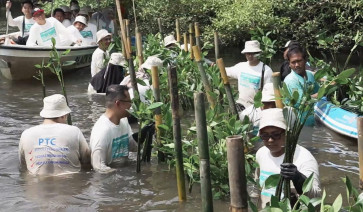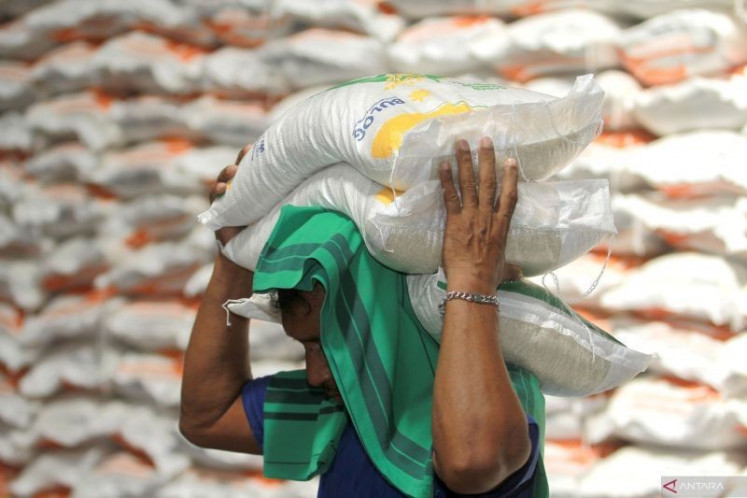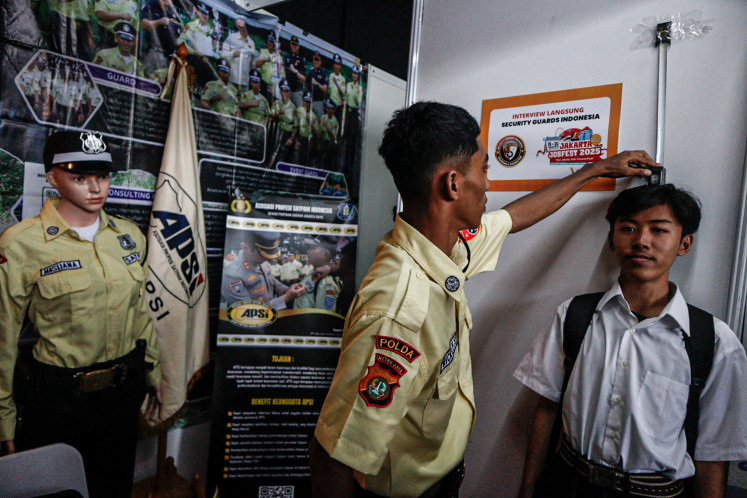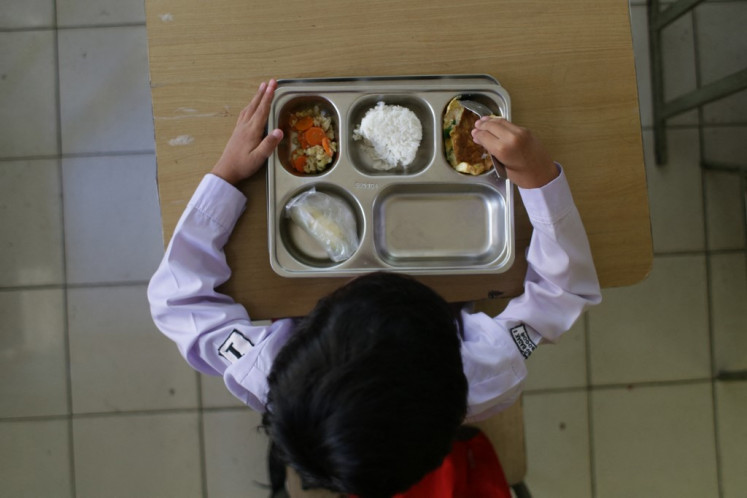Popular Reads
Top Results
Can't find what you're looking for?
View all search resultsPopular Reads
Top Results
Can't find what you're looking for?
View all search resultsOn message on climate change
A newspaper can report on the same climate change story in every section, albeit with a slighty different slant
Change text size
Gift Premium Articles
to Anyone
A
newspaper can report on the same climate change story in every section, albeit with a slighty different slant. Many stories are now focusing on the impact of climate changes, i.e., the victims of calamity.
Other stories might focus on solutions or the adaptation angle: Don’t live on the coast if high tide pounds you. Meanwhile, stories on mitigation focus on on greenhouse gas reduction.
These observations came from Amanda Katili, division chief for communication, education and information of the National Council on Climate Change (DNPI). She responded to a question from Maha Adi, executive director of the Society of Indonesian Environmental Journalists (SIEJ), who asked what is the ideal role of the media in
reporting on climate change.
The exchange came at a discussion the DNPI held with media practitioners at the Borobudur Hotel in Central Jakarta on Feb 13. The DNPI hosted the meeting with the intent to learn how the media can generate greater public awareness and action on this global issue.
It wanted to identify good practices in outreach activities in line with Article 6 of the United Nations Framework of the Convention on Climate Change. To that end, Amanda got an earful of input that she scrupulously wrote down.
Taufiqurrohman, a reporter of Gatra weekly news magazine, argued the role of the media can’t be detached from the sexiness of an issue. When former US vice president Al Gore speaks, climate change becomes sexy — that makes people aware, he explained.
Use the radio, other said. DNPI should give a regular supply of information to radio stations. The Indonesian National Private Radio Association (PRSSNI) has over 1,000 affiliated radio stations. They can use the information on radio spots, suggested Bob Iskandar, public affairs chief of PRSSNI.
It’s the singer, not the song, exclaimed Pangesti “Chichi” Bernardus, chief editor of fit, a health and beauty magazine. The singer is important. Infotainment (TV news with entertainment) could be a medium. It should not be reviled. People like it. It gets high ratings. Get someone in it to talk about climate change. People pay attention to the singer, Pangesti said.
Local television should get attention. Every province has local television. Don’t just give notice to the nationwide private TV stations, Jauhari Ardiwinata, project officer, PT Indonesia Local TV Network, said.
Meanwhile, Maha Adi of the SIEJ proposed the DNPI should support local initiatives throughout the regions and not allow for Jakarta-based hegemony. Support journalists with blogs. Help get their stories out. The SIEJ supports citizen journalism, Adi asserted.
One input had its amount of criticism. The DNPI must be powerful. Now it is not, declared Untung Widyanto, environment writer with the Koran Tempo daily. It gets caught between the interests of other sectors that are at cross purposes with it. One government program that calls for accelerated growth in disadvantaged areas undercuts the 26 percent carbon emissions reduction target, lamented Untung.
For his part, DNPI executive chair Rachmat Witoelar accepts that local media in the regions do resonate. The DNPI will be more intensive in providing them with information on a routine basis. Information would use the carrot and stick approach. The carrot is that if people act well in response to climate change, then they can have a highly valued green economy. The stick is that if people don’t act, then their grandchildren will suffer, Rachmat said.
One issue that did not emerge in the discussion was the gender aspect of climate change. An overview report of the UK-based Institute of Development Studies, Gender and Climate, came out in October 2011.
Its author, human geographer Emmeline Skinner, noted that climate change responses have been overly focused on scientific and economic solutions rather than on the significant human and gender dimensions.
She called for moving climate change responses beyond purely technical analysis to a focus on the social and gender dimensions. In reporting on climate change, the media could emphasize gender-aware approaches to the issue where women and men have an equal voice in decision-making.
In any event, as to how the media can best act to create public participation on climate change, it has to be able to satisfy its basic need: Information access. So long as the DNPI and all the right sources can help in that, the carrot will be something people today and tomorrow can look forward to.
The writer teaches at Dr. Soetomo Press Institute (LPDS) in Jakarta.










